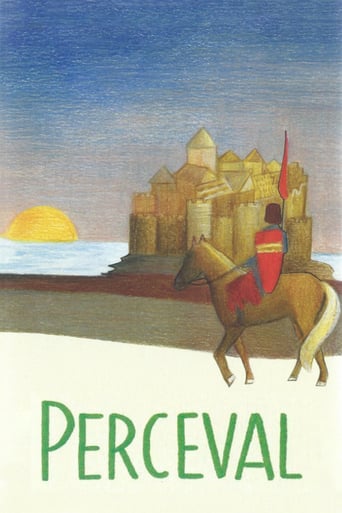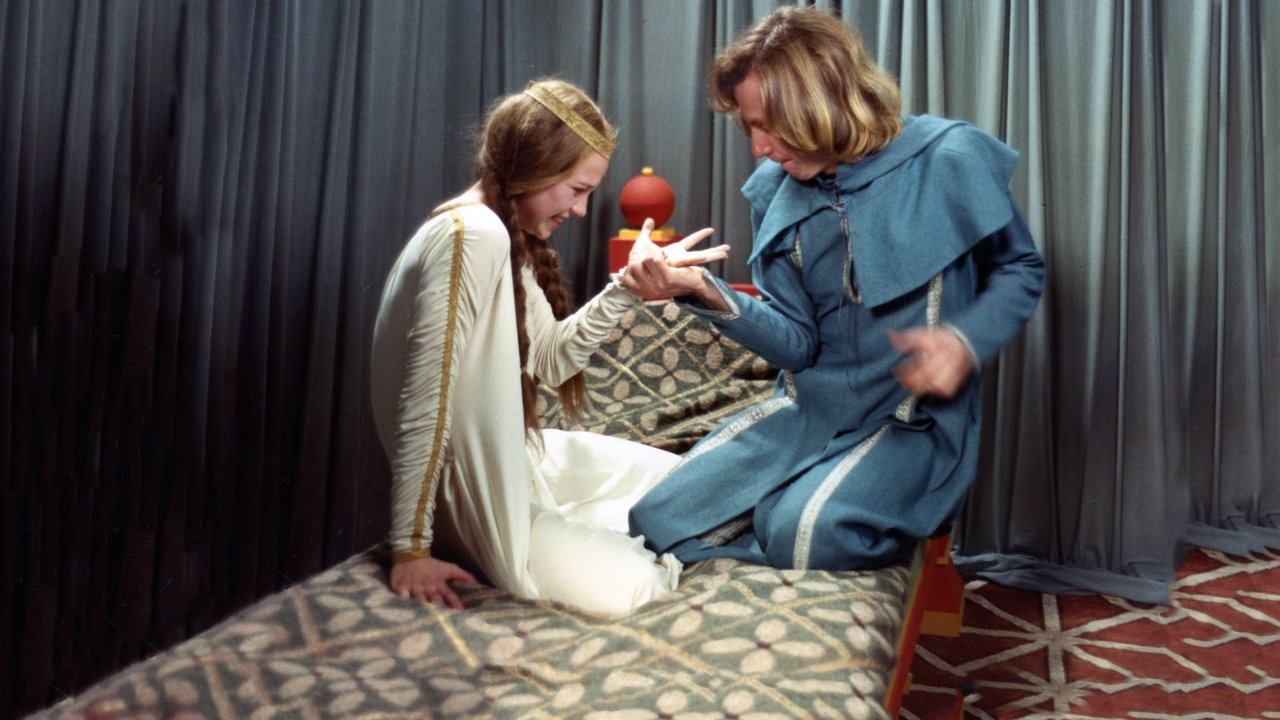davidgoesboating
When one talks about the French New Wave, names like Godard and Truffaut would be the first to come to mind. And yet, I find that it is this severely underrated director, Eric Rohmer, who is probably the best of the lot. Rohmer's films are unique. I have never seen anything like them, and yet in a way they are all the same. The plots often contain similar outlines, and you pretty much know what you're going to get when you sit down to watch one of his movies. Perceval is different, to say the least. Not only has Rohmer left the settings of 20th century France to go back in time, he seems to have entered a parallel universe as well. Perceval exists in a world with painted backdrops, metal trees, fake castles and musical accompaniment to much of the dialogue. One of the things I love about Rohmer's films are that they are so unpretentious, yet remarkable. Such adjectives are definitely applicable to Perceval. It should appeal to all of those who have once had an interest in the legends of King Arthur, French cinema, for that matter cinema in general. Or, simply, just see Perceval if you want to see a brilliant and unique film.
Andres Salama
I admit that I avoided this film for years probably because most films that have dealt with the Arthurian legend have been pretty bad. So when I finally watch it this year during a retrospective of Rohmer's oeuvre, it was a surprise to find that this movie is really wonderful, and it ought to be better known. Based on Chretien de Troyes medieval book, the film is at times faithful to its literary source and at times very, very eccentric. The style is difficult to explain: the movie wallows in its deliberate artificiality, with its cardboard sets, its wooden acting, and its impromptu (and wonderful) medieval songs. And to top it all, the movie ends with a long rendering of a medieval mass. The movie has a lot of humor actually, which is fairly unusual in Rohmer films, a humor that is very self-conscious and is very 20th century (brechtian distance is a phrase that comes to mind when you watch this film), yet at the same time, the film sometimes looks as a film that could have been made in the 12th century, had the technology been available back then.
Howard Schumann
Eric Rohmer's Perceval Le Gallois transports us back to the Middle Ages, offering a magical vision of the Grail legend in poetry, music, and simple imagery. The film is set in the time of King Arthur and his roundtable. By using costumes based on religious paintings of the Middle Ages, and sets of miniature gold castles and metallic trees, standing silhouetted in front of a painted canvas backdrop, Rohmer creates a sense of childlike wonder. Though based on an unfinished 12th century novel by Chretien de Troyes, the text has been modernized for modern audiences. Female and male choruses sing the connecting narration in traditional rhyming couplets and, with true theatrical flair, actors speak not only their lines but also the thoughts of the characters. Perceval (played by Fabrice Luchini in a performance I found to be the film's biggest drawback) is a naïve youth who lives with his mother. When he is awed by his first encounter with a knight, he determines to go to King Arthur's court to become a knight. Securing the blessings of the King, he takes lessons in chivalry from the wise Gornemant de Goort (Raoul Billerey). His adventures and a subplot involving Gawain take up the remainder of the film. Perceval first captures the heart of Blanchefeur (Arielle Dombasle), then those of other fair maidens, always remembering the simple tenets taught to him by Gornemant. With a powerful depiction of the passion of Jesus Christ and an episode involving the Bloody Lance and the Holy Grail, Perceval gives us a modern insight into chivalry, and also allows us to glimpse the underlying mystery of life.
Andrew
I was quite skeptical during the first few minutes of viewing _Perceval_; I hadn't been aware ahead of time of its unique style. As I made the leap from thinking about this as a cinematic experience to viewing it as more of a theatrical production, I got into it more. I liked the minstrels -- I love that style of medieval music, and they provided both entertainment and a necessary Greek-chorus-like narrator role.I do not speak French; however, by listening to the dialogue (instead of just reading the English subtitles), I was able to appreciate the rhythm and rhyme.I found the level of Perceval's naivete hard to swallow at times. But the most disturbing thing was how the narrative became fragmented and then just petered out at the end -- mixing Gawain's and Perceval's tales, and not resolving either of them.Overall, a stylistic tour-de-force, but a narrative disappointment.


 AD
AD
